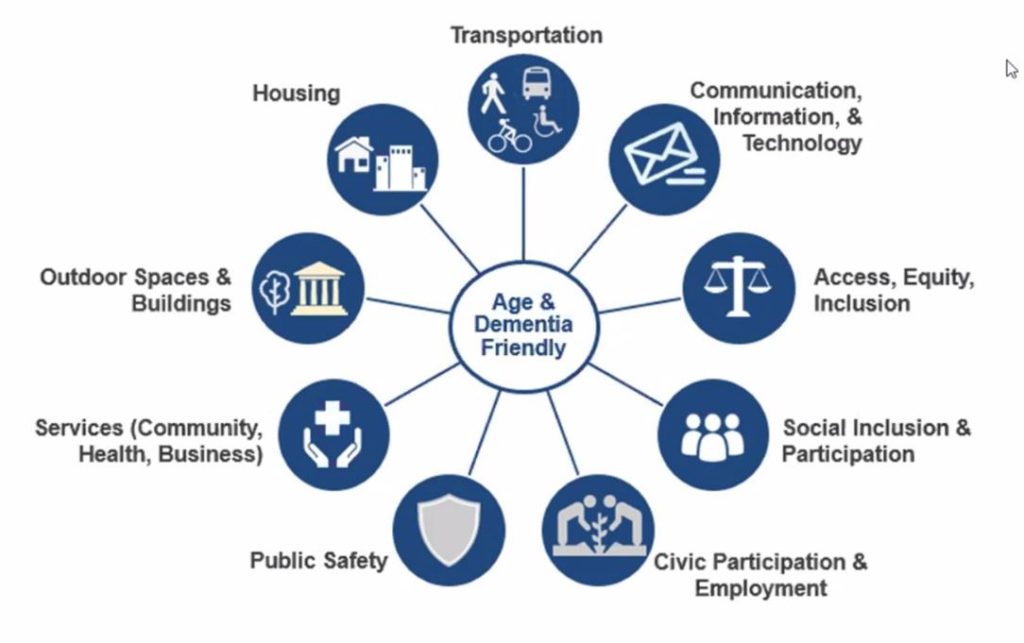Amherst Aims To Become An Age And Dementia Friendly Community. Seeks Residents To Join Working Group

Photo: amherst.ny.us. Creative commons
Source: amherstma.gov
The Town of Amherst is launching a new project aimed at understanding how our community can best serve older adults and people with dementia. Together, we will explore how we can work to improve opportunities and outcomes for older adults and people with dementia by becoming an Age and Dementia Friendly Community.
The Town is working with staff from Pioneer Valley Planning Commission who are assisting with the project. Additionally, the Town is forming a working group to provide oversight of this work. The working group will assist with community engagement strategies and development of a community assessment and action plan. The working group will meet monthly throughout 2022.
The project’s web page can be found here.
Working Group Kick-Off Meeting
The Town will be holding its kick-off working group meeting on Thursday, January 20, 2022, from 1:00pm – 2:30pm via Zoom. The public is invited to participate.
- To join the meet via computer: https://amherstma.zoom.us/j/83759179568?pwd=SHN0clNjb2dFQUN1MmhIVEdGZXBsdz09
- To join the meeting via telephone: Call (312) 626-6799, enter webinar ID when prompted: 837 5917 9568. When prompted to enter your participant number press #. Passcode: 504711
The purpose of this meeting is to provide an overview of the project, project timeline, and to answer any general questions. All are welcome.
Livable Amherst Community Survey
The Town, with the assistance of the working group and volunteers, will distribute surveys targeted to older adults in Amherst and caregivers to assess the areas where older residents may be facing the greatest challenges. The survey will be posted online soon and will also be available in hard copy form. All survey respondents will be eligible for a gift card drawing.
Listening Sessions
The working group will host a series of listening sessions (via Zoom until further notice) to engage older adults. Stay tuned for more information.
Listening session topics will be based on a model developed by the Massachusetts Healthy Aging Collaborative, that combines the eight domains of livability model developed by the World Health Organization for assessing communities’ ability to support an aging population and the Ten Sectors of a Dementia Friendly Community (see below). The model includes elements of the physical and social environments that are key determinants of whether people can remain healthy, independent, and autonomous as they age.
The Eight Domains Of An Age And Dementia Friendly Community
- Access, Equity, and Cultural Inclusion.
- Outdoor Spaces and Buildings.
- Housing.
- Social Inclusion and Participation.
- Transportation.
- Civic Participation and Employment.
- Communication and Information.
- Services (Business, Health, Community)
The Ten Sectors Of A Dementia Friendly Community
In planning for an aging population, communities are also facing an increasing number of people diagnosed with Alzheimer’s or other forms of dementia. It is important for many sectors of the community to be educated about how to recognize the signs of dementia and how to work with people who have dementia. In addition, most people with dementia have caregivers who must be with them at all times. Communities can provide safe and comfortable spaces for people with dementia and their caregivers to meet or seek respite care. Dementia Friendly America is a national network of communities, organizations and individuals seeking to ensure that communities across the US are equipped to support people living with dementia and their caregivers. Dementia Friendly Communities foster the ability of people living with dementia to remain in community and engage and thrive.
Dementia Friendly America lists ten sectors that should be dementia informed in order to create a dementia friendly community.
- Transportation, Housing and Public Spaces (local government) – Infrastructure that makes communities more livable for people with dementia and their caregivers
- Businesses – Dementia supportive customer service, environments and polices that support employee caregivers
- Legal and Advance Planning Services – Legal services that help vulnerable clients express their wishes early and avoid problems such as unpaid expenses
- Banks and Financial Services – Dementia friendly practices that help maintain clients’ independence while protecting them from problems
- Neighbors and Community Members – Raising awareness to help neighbors and community members understand and support people living with dementia
- Independent Living – Home-based services available to maximize independence and promote autonomy and a high quality of life
- Communities of Faith – Faith communities use dementia friendly practices to provide a welcoming, compassionate environment and spiritual connection
- Care throughout the Continuum – Early diagnosis of dementia and ongoing medical care; patient education; and connecting patients and their caregivers with community resources that promote quality of life
- Memory Loss Supports and Services – A spectrum of settings and services needed by people with dementia – from long-term care facilities and assisted and independent living residences, to home care, adult day services, and hospice care
- Emergency Planning and First Response – Community planning and family preparation considers safety, security, and needs of people with dementia in disaster planning and emergency response.

It is important for communities to plan for people with dementia while preparing for more livable communities, as data indicates that the numbers of people with dementia will continue to rise as the population ages.
It is important for communities to plan for people with dementia while preparing for more livable communities, as data indicates that the numbers of people with dementia will continue to rise as the population ages.
Questions on this community project? Contact:
- Hayley Bolton, Amherst Director of Senior Services (413) 259-3060 boltonh@amherstma.gov
- Maureen Pollock, Amherst Planner (413) 259-3120 pollockm@amherstma.gov
Resources
- •Age Friendly Pioneer Valley Amherst: http://www.pvpc.org/content/age-friendly-pioneer-valley-amherst
- Age and Dementia Friendly Initiative: http://www.pvpc.org/content/age-and-demenia-friendly-initiative
- •AARP Age Friendly Communities: https://www.aarp.org/livable-communities/network-age-friendly-communities/
- •Age-Friendly Massachusetts: https://www.mass.gov/service-details/age-friendly-massachusetts
- •Massachusetts Age and Dementia Friendly Integration Toolkit: https://www.mass.gov/handbook/massachusetts-age-and-dementia-friendly-integration-toolkit
- •Mass Healthy Aging Collaborative-Age Friendly: https://mahealthyagingcollaborative.org/age-friendly/
- •Dementia Friendly Massachusetts: https://dfmassachusetts.org/
- Hayley Bolton, Amherst Director of Senior Services (413) 259-3060 boltonh@amherstma.gov
- Maureen Pollock, Amherst Planner (413) 259-3120 pollockm@amherstma.gov

Thanks for continuing coverage of this important Town effort.